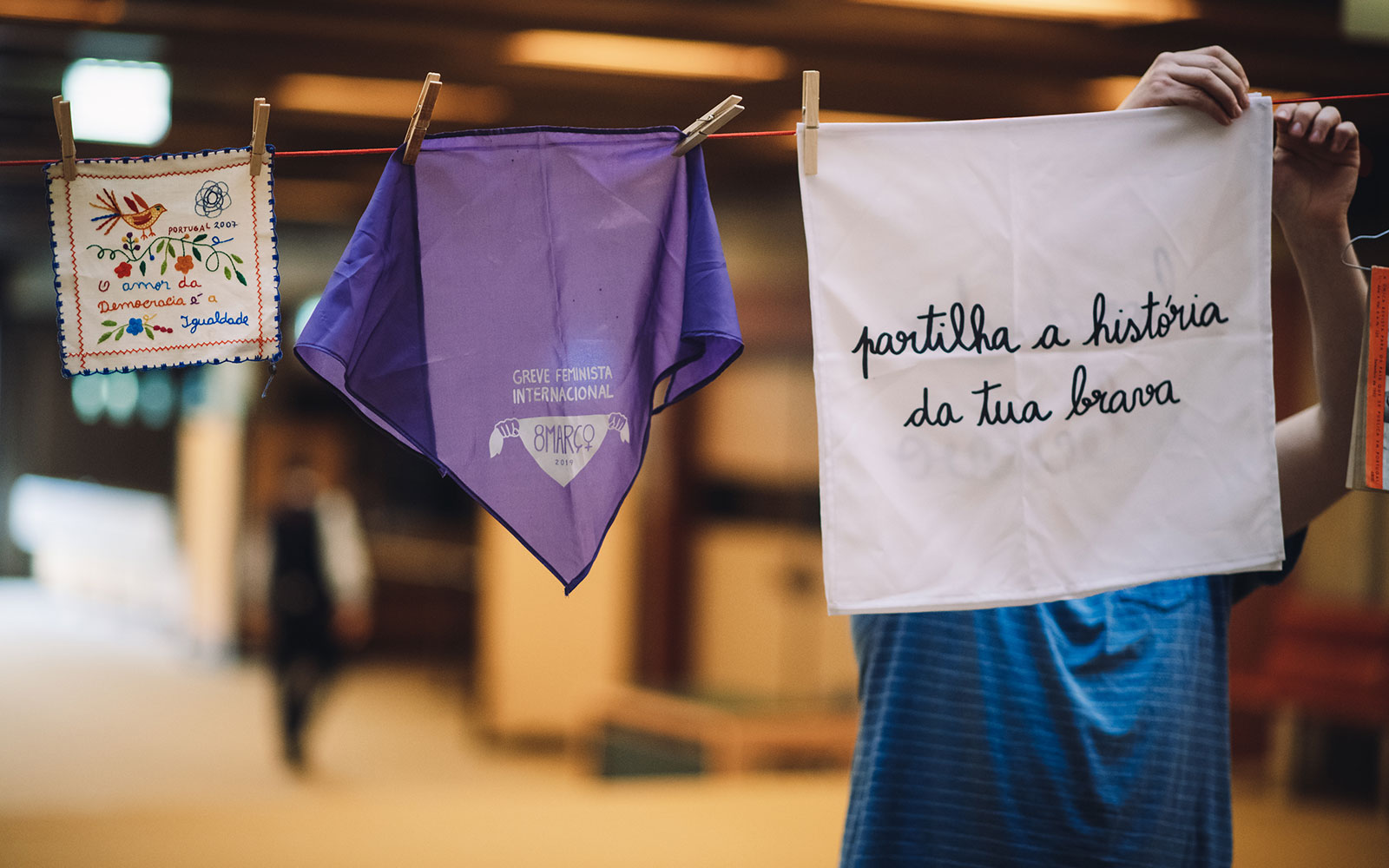“As Bravas” – women heroes of everyday life to inspire future generations
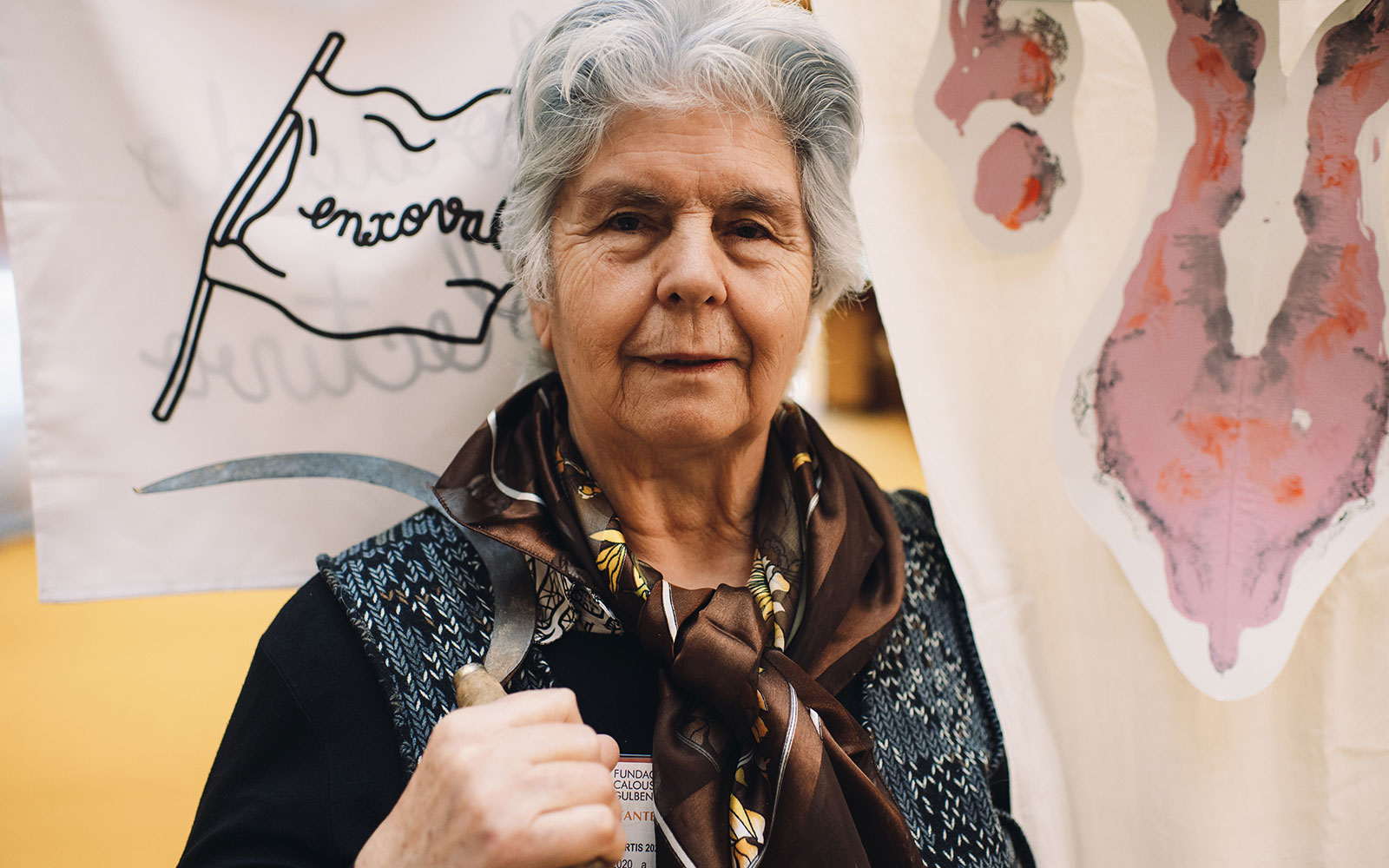
“Maria Filomena Manuel, known as Filó, the oldest of six brothers, was born in Angola, among the Mamuila tribe”. This is how the story of “Filó, the cook of kindness”, begins in the hands of Clara Não, in the fourth fanzine made by the project ENXOVAL: Time and Space for Resistance. Developed by PELE, in between Porto and Amarante, this is one of the projects supported by the third edition of the PARTIS initiative.
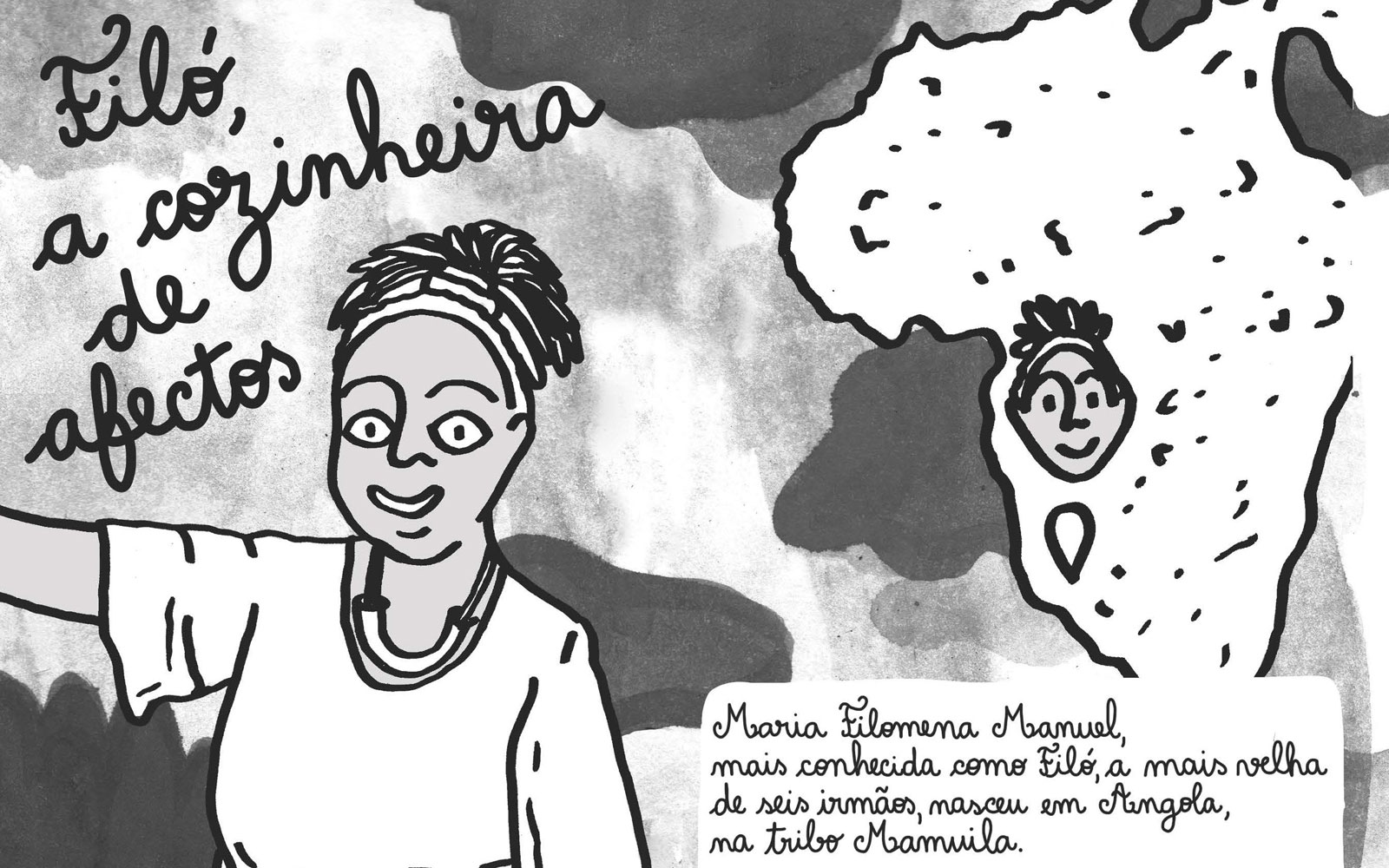
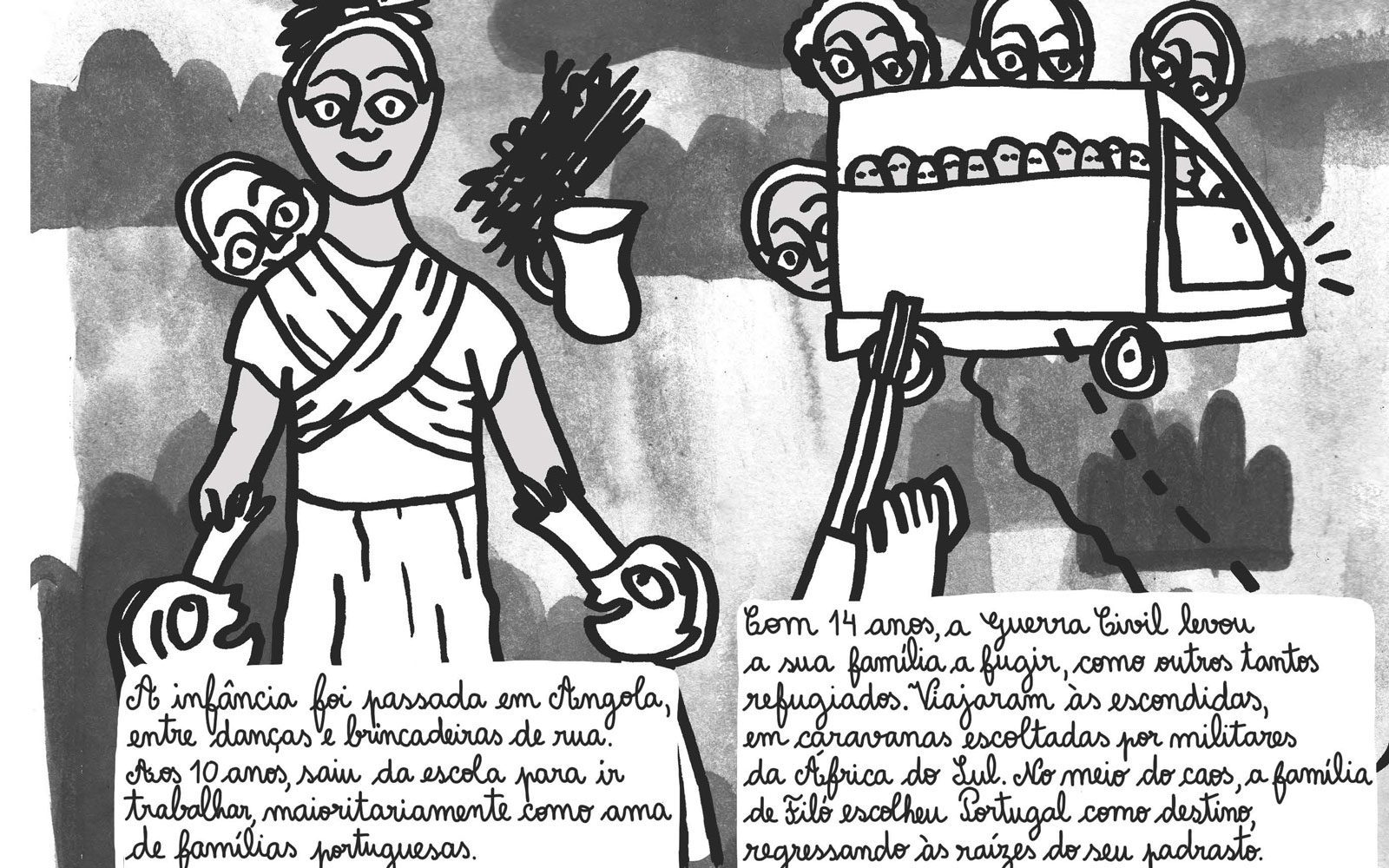
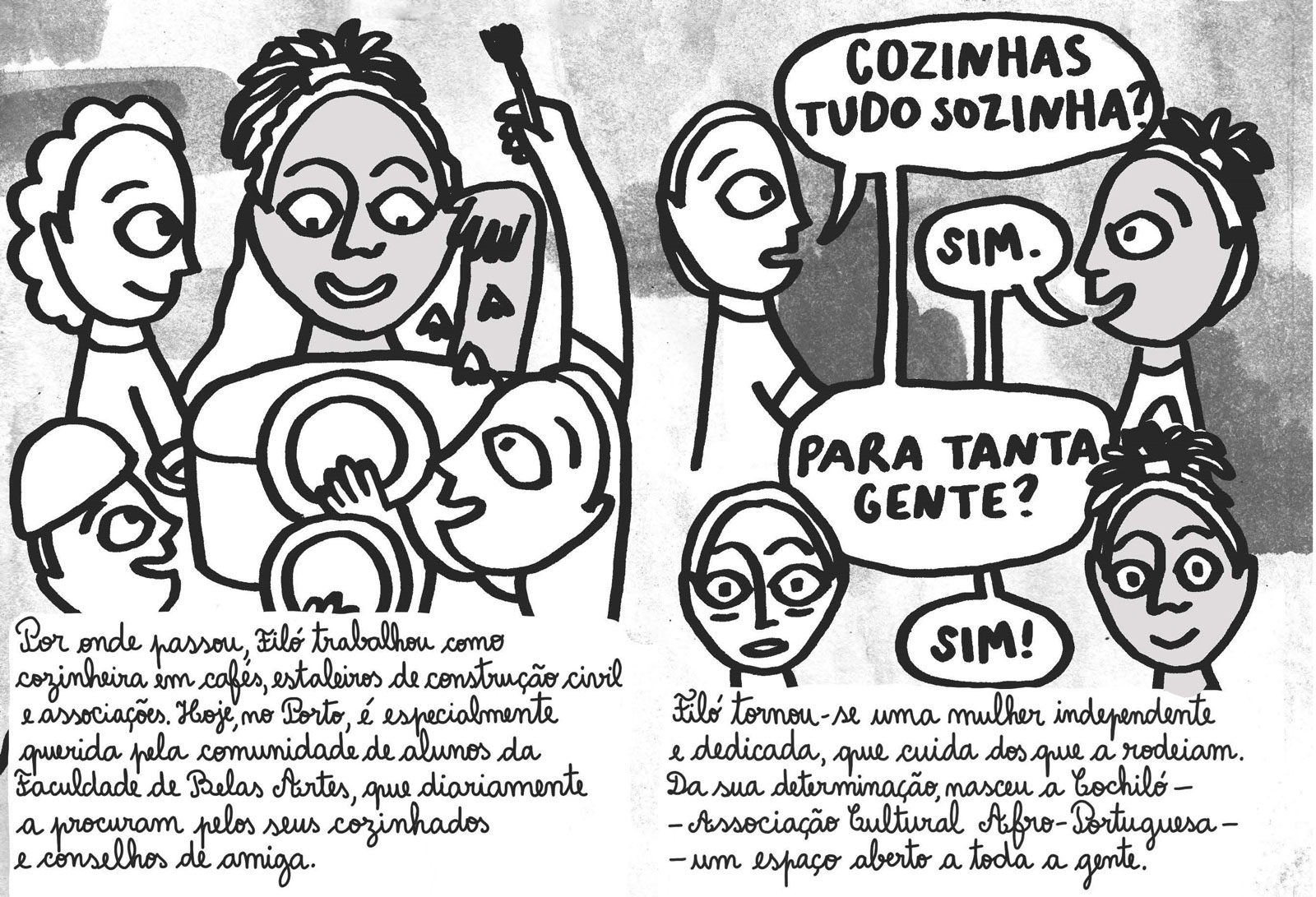
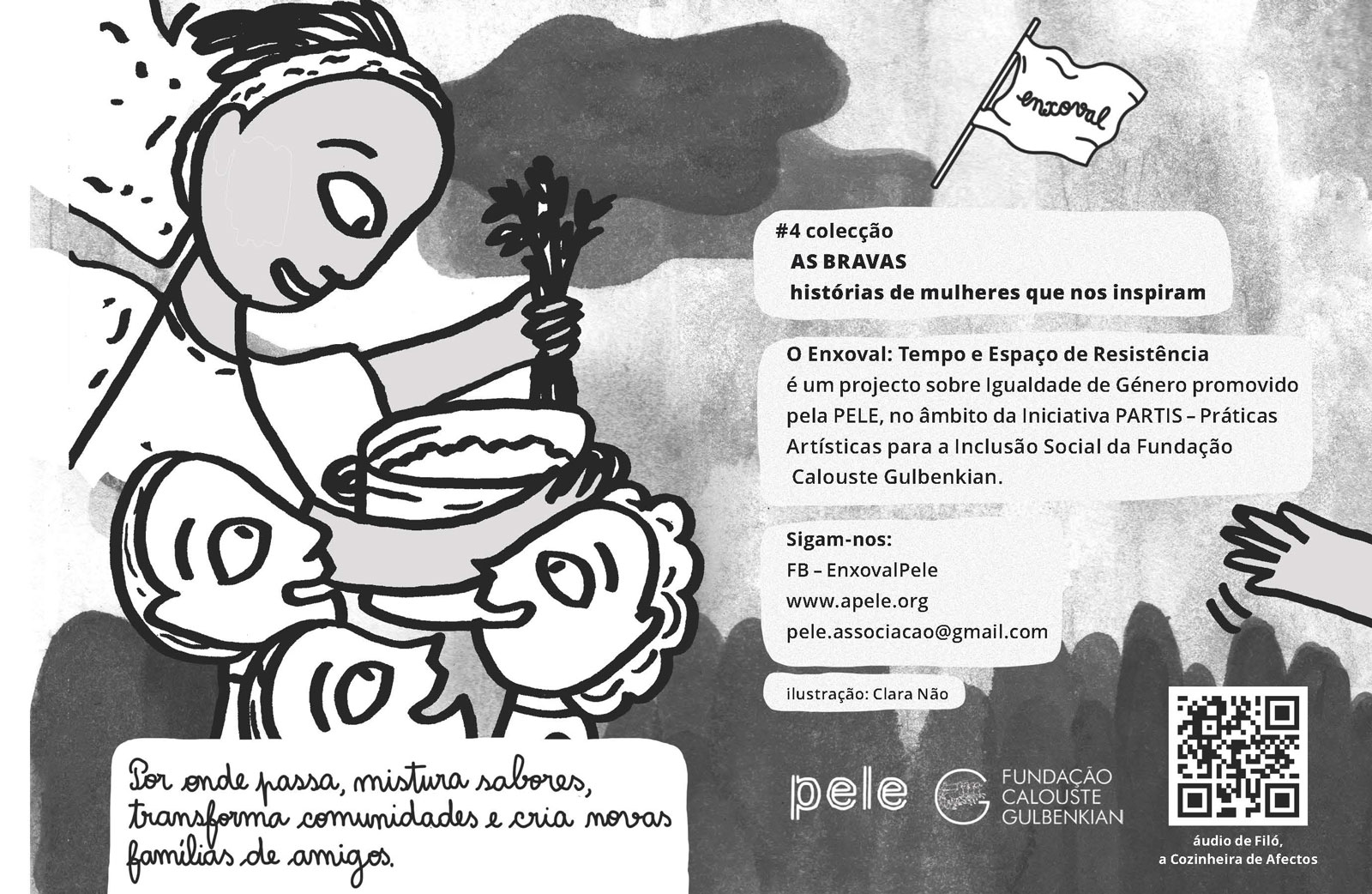
Filó, “an independent and devoted woman”, founder of Cochiló – Associação Cultural Afro-Portuguesa, in Porto, joins “Ana, the Brave”, “Rosalina, the Dreamer” and “Lokas Without Borders”. But who are these women so vastly different from one another to whom they call Bravas?
“When we think about History, the great names that come immediately to mind belong to men, they are the names of kings and male characters” explains Inês Lapa, the artistic director of the project. “We began to realize that there is a layer of invisibility covering the stories of many women who certainly made a difference, but are not being told. This is how Bravas started – stories of “inspiring women heroes of everyday life that we want to inscribe in history and in our collective memory”.
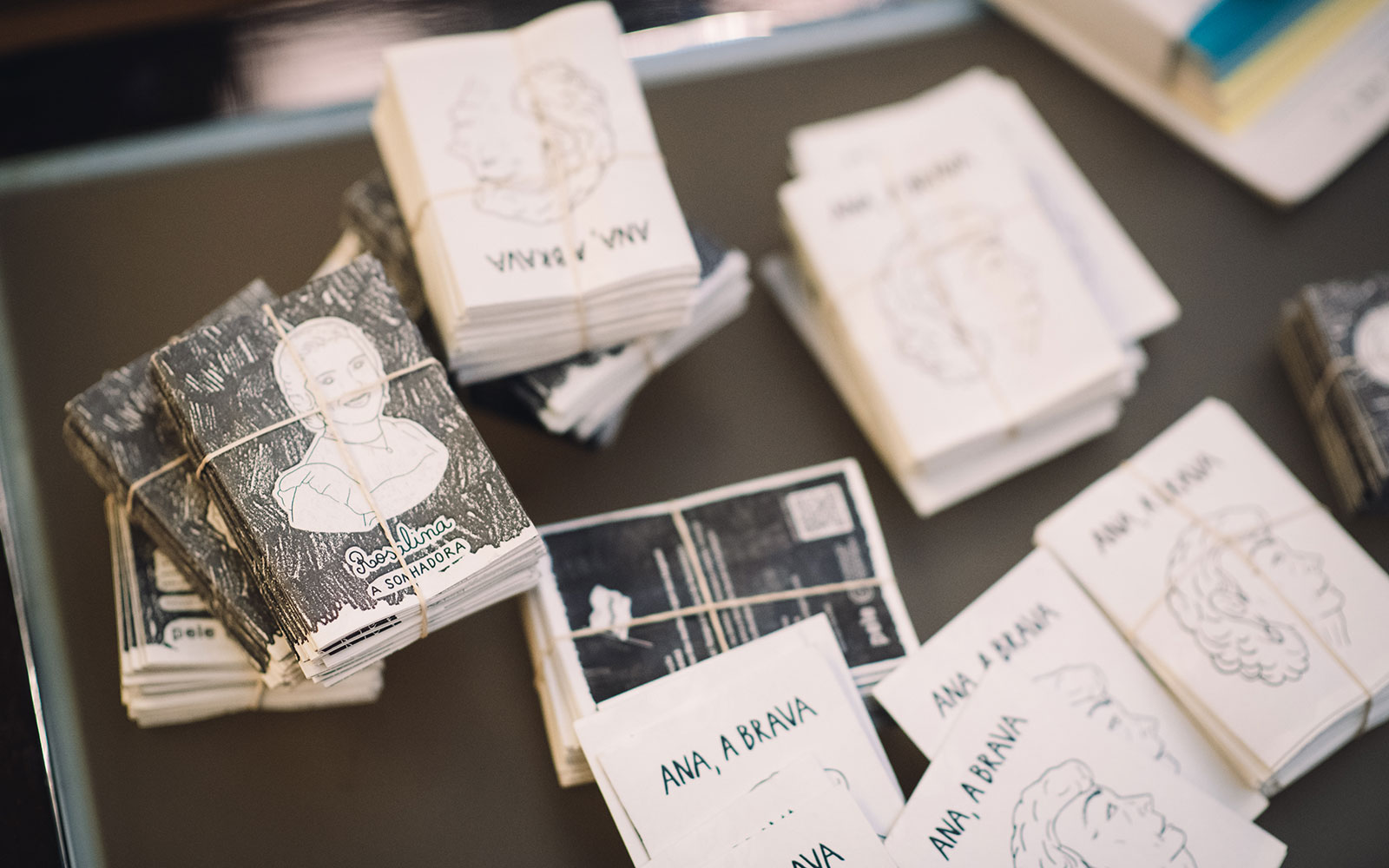
A narrative built with many voices
This is one of the several “branches” of the project Enxoval, which has been working with community theatre groups since 2019, both in Porto and Amarante, about feminine heritage and gender equality. The stories are the result of an open call on social media: anyone can share the story of an inspiring woman in their life by sending it in writing or in audio recording of up to three minutes.
Among the various applications received, it is up to the community groups to decide which stories are going to be illustrated and transformed into fanzines. The selection follows a set of pre-established criteria “because it has to be representative and we have to consider if a given Brava already has visibility in the public sphere; if she has already conquered her space we tend to privilege others who haven’t”, explains Maria João Mota, responsible for the social aspect of the project. “This is a democratic election process.”
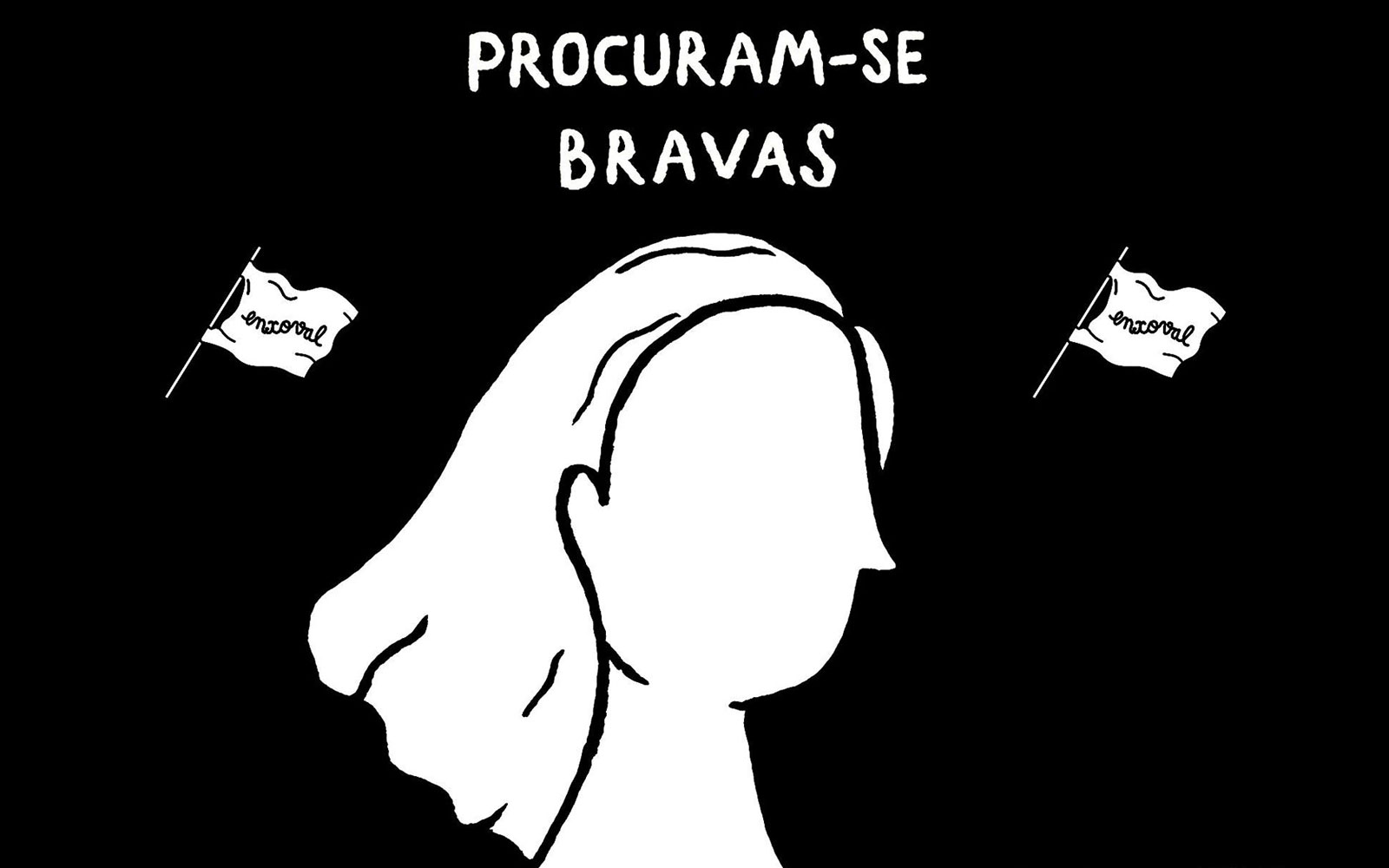
The next step is the illustration of the stories. This is when Clara Não, illustrator from Porto, steps in. She is going to put her hands to work after listening to the audio file telling the story and to conversations with the person in question or with a close family member. “This work is always done in collaboration so that everyone is happy; we want to make sure we’re representing someone in a way that that person sees fit.” explains Clara. The result is a fanzine which is available online on PELE’s website but is also printed and distributed across the country.
The collaboration with Clara gave visibility to the project and kept it going thanks to the artist’s fanbase on social media. The illustrator, known for the irony and irreverence of her work and her claims for gender equality, deals with the taboos of modern society and explores her personal experiences. She believes “it is important to mention other women, not only those who are already very famous, because those are not the women who we deal with in our everyday lives; we have to mention those who live with us and who are present in our communities”. That is why she didn’t hesitate when she received the invitation to join this project: “I said yes because I strongly relate to the project and I am very happy to participate”.
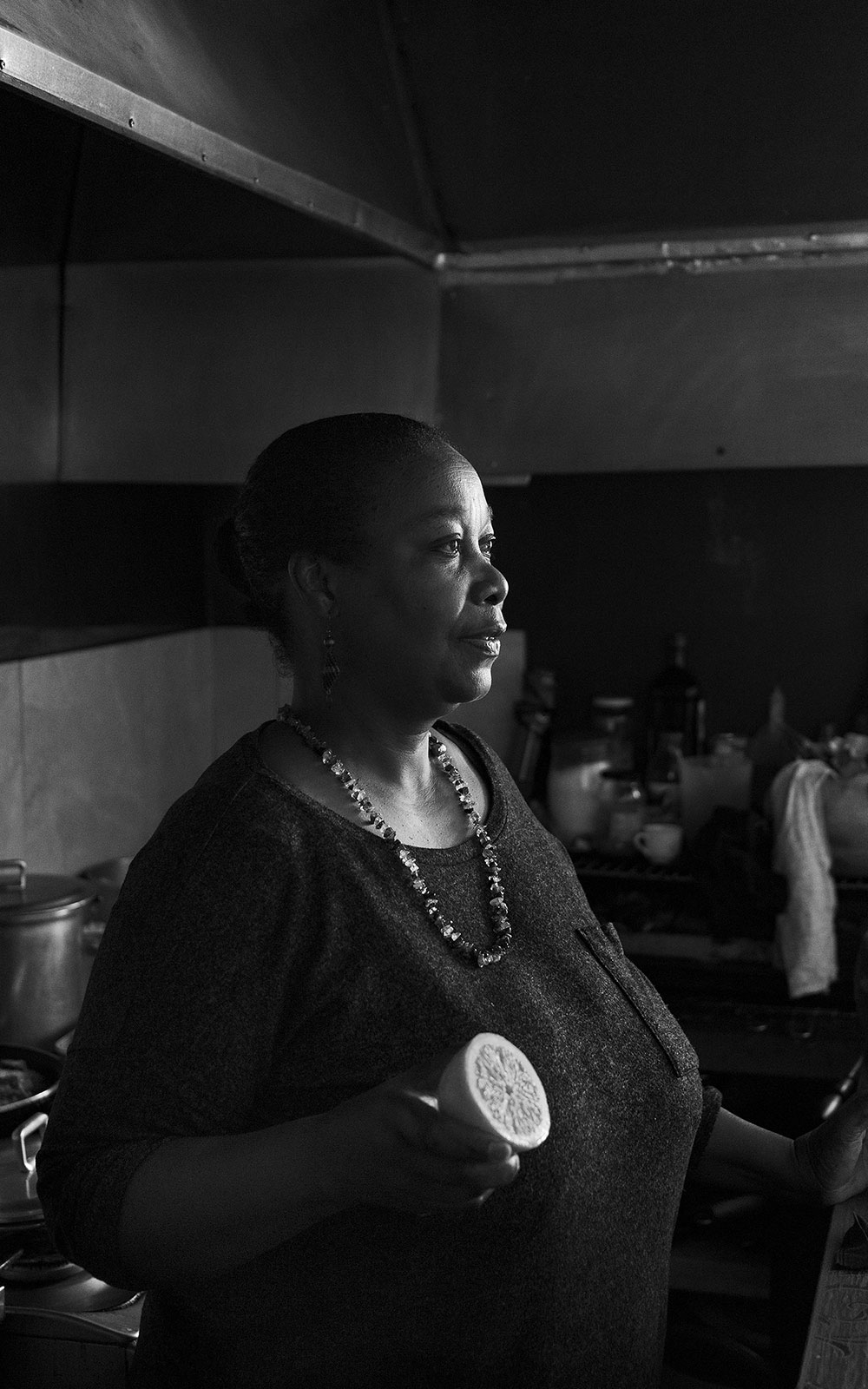
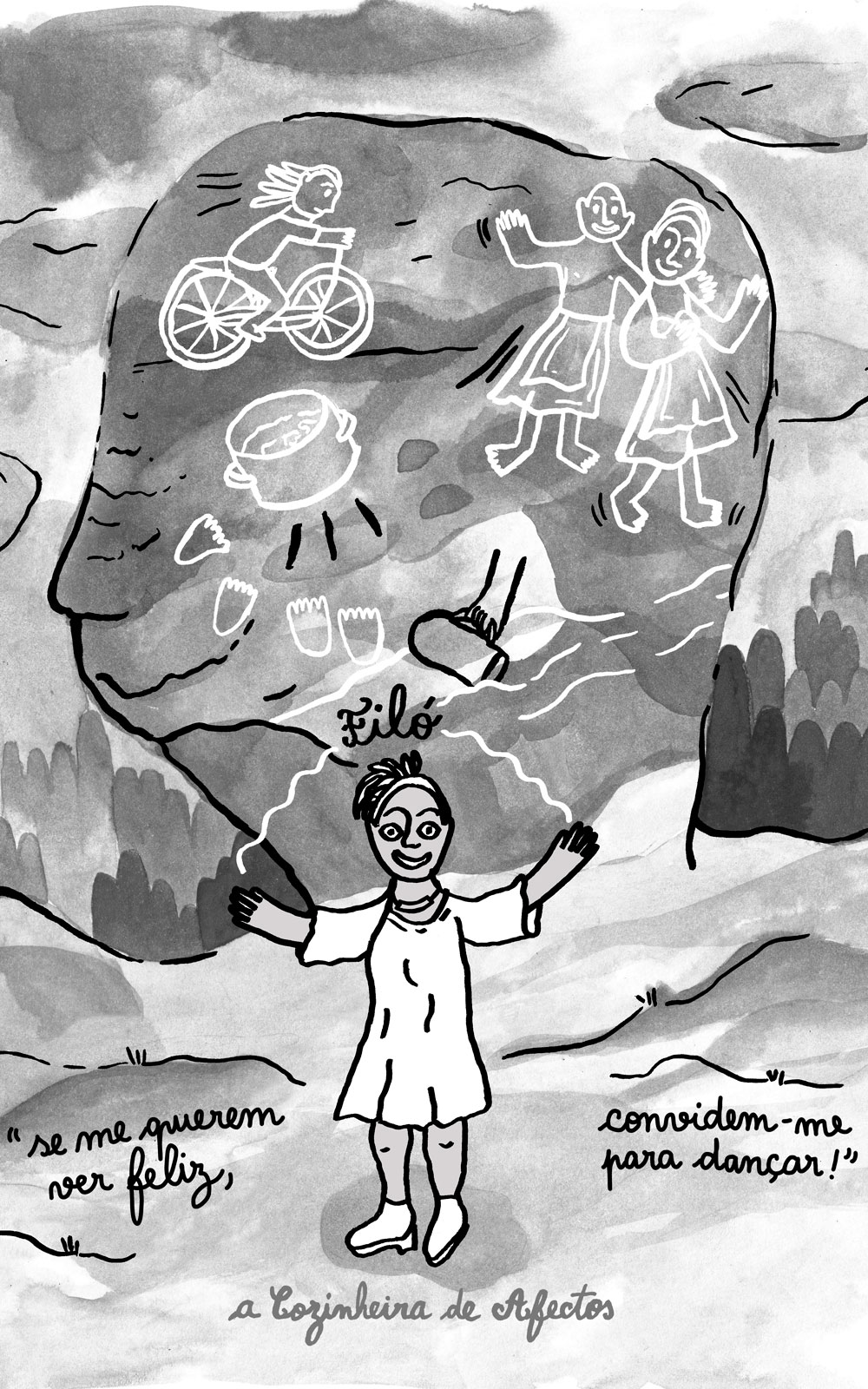
“Unhiding” invisible stories
The first 500 fanzines telling Filó’s story are already sold out. Her story was shared by her friend Teresa, who is also teaching her to read and write. Filó, the cook of kindness, tells us “it is pure joy” to see her story written down in paper. “I did kindergarten and primary school in Angola, but afterwards, at the age of 10, my mom had to put me to work” she tells us. “All the reading and writing I had learned – like signing my own name – stayed with me, but it slowly fades away. This is like a new awakening.”
To those who ask her if it feels strange to expose her life like this she simply says “not even a bit! if I had studied, I would have probably written a book myself. But when someone shows up in here and asks me ‘are you up for it? do you want to tell us who you are?’, of course I’m in!”
Listen to Filó’s story told by her friend Teresa (in Portuguese)
Until the project ends (in 2021), Inês Lapa tells us that a total of 12 fanzines will be published, making up “a collection of 12 completely different women who are all very inspiring, each one in her own way”. The collection will include, for example, a judge, a doula or a health assistant in a home – a fundamental role nowadays. The main goal of this project is to “unhide” the stories that otherwise would not be told and to get closer to the personal contexts of people from different generations, across different territories.
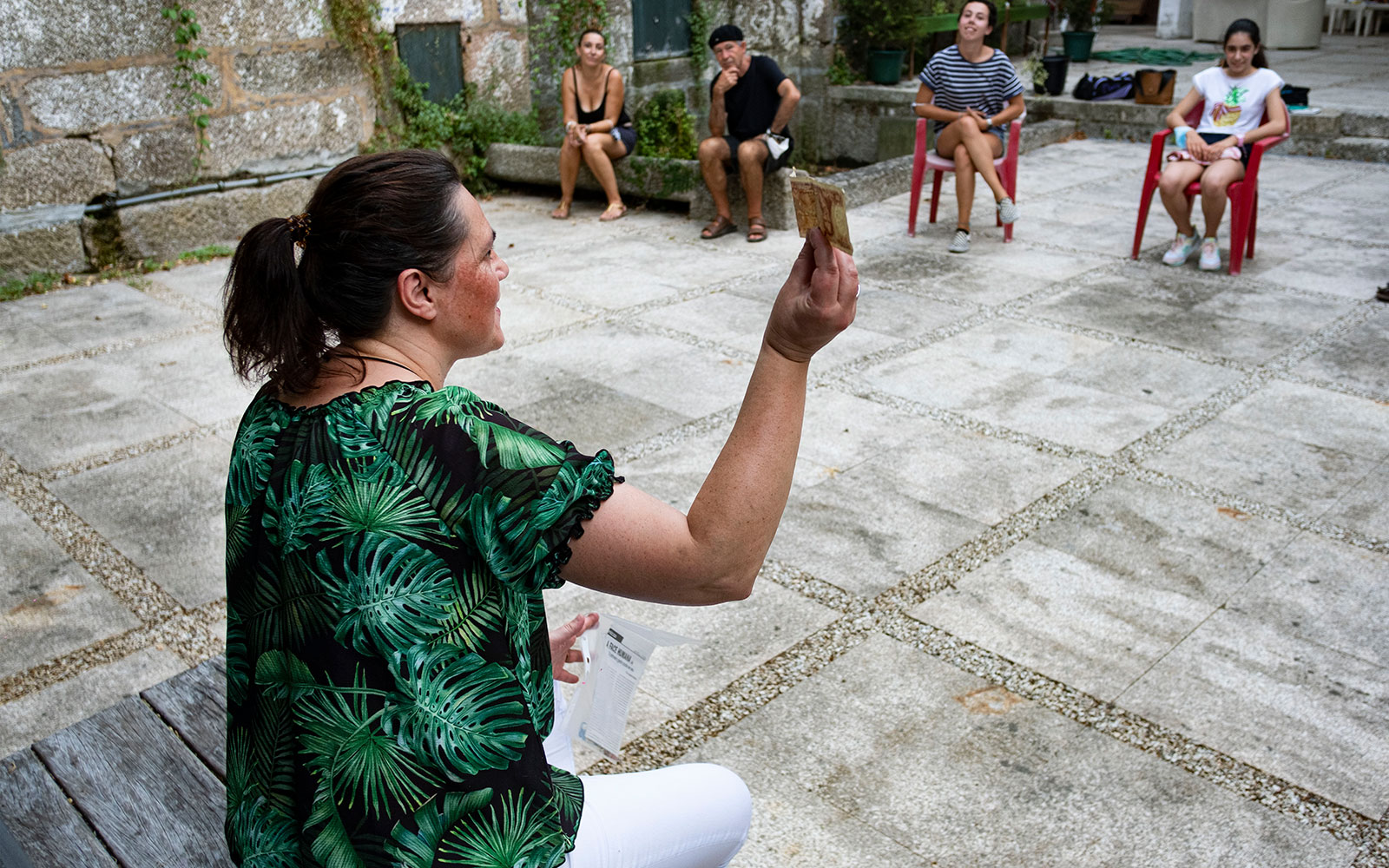
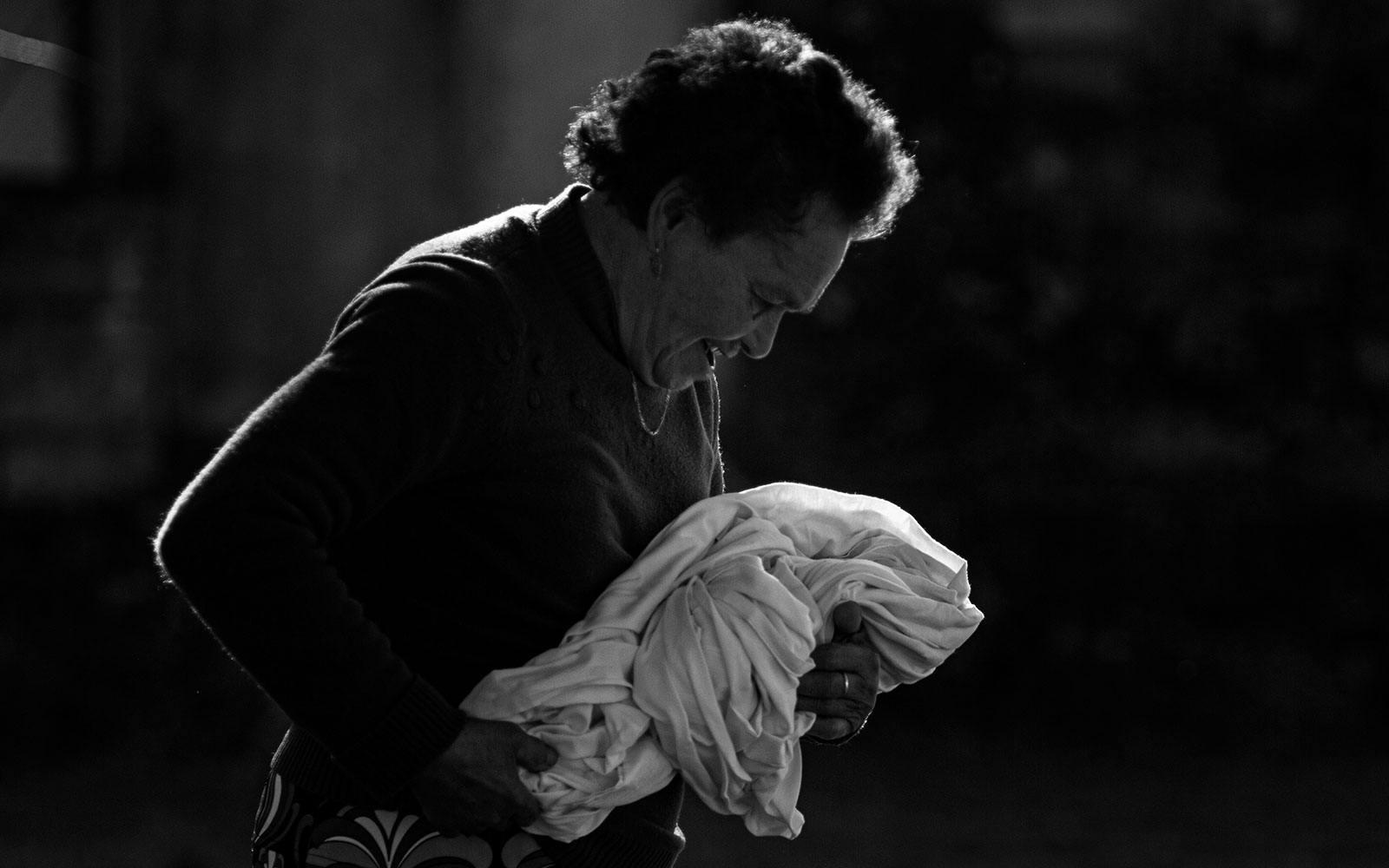
ENXOVAL [Trousseau] stems from the idea of the trousseau as a social representation of the condition of women to propose a multi-territorial, transdisciplinary and intergenerational approach on gender equality through music, theatre, movement, embroidery or illustration. Besides the fanzines, artists and participants work together in artistic performances like the installation “Enxoval, um bordado a muitas mãos” that took place during “Isto é PARTIS”, in January.
